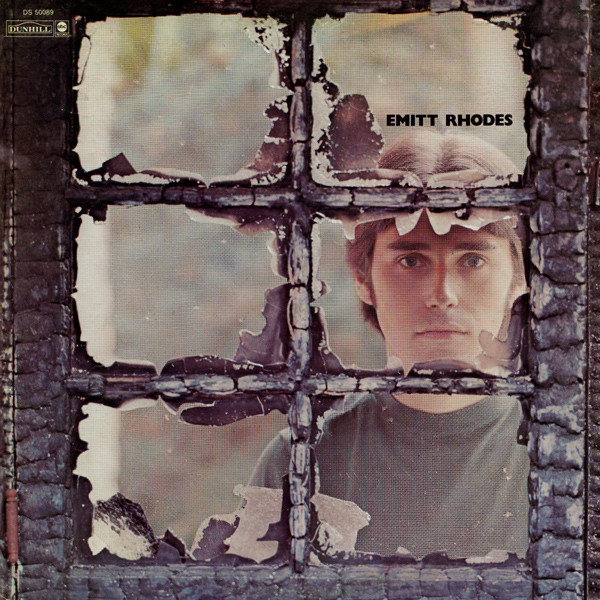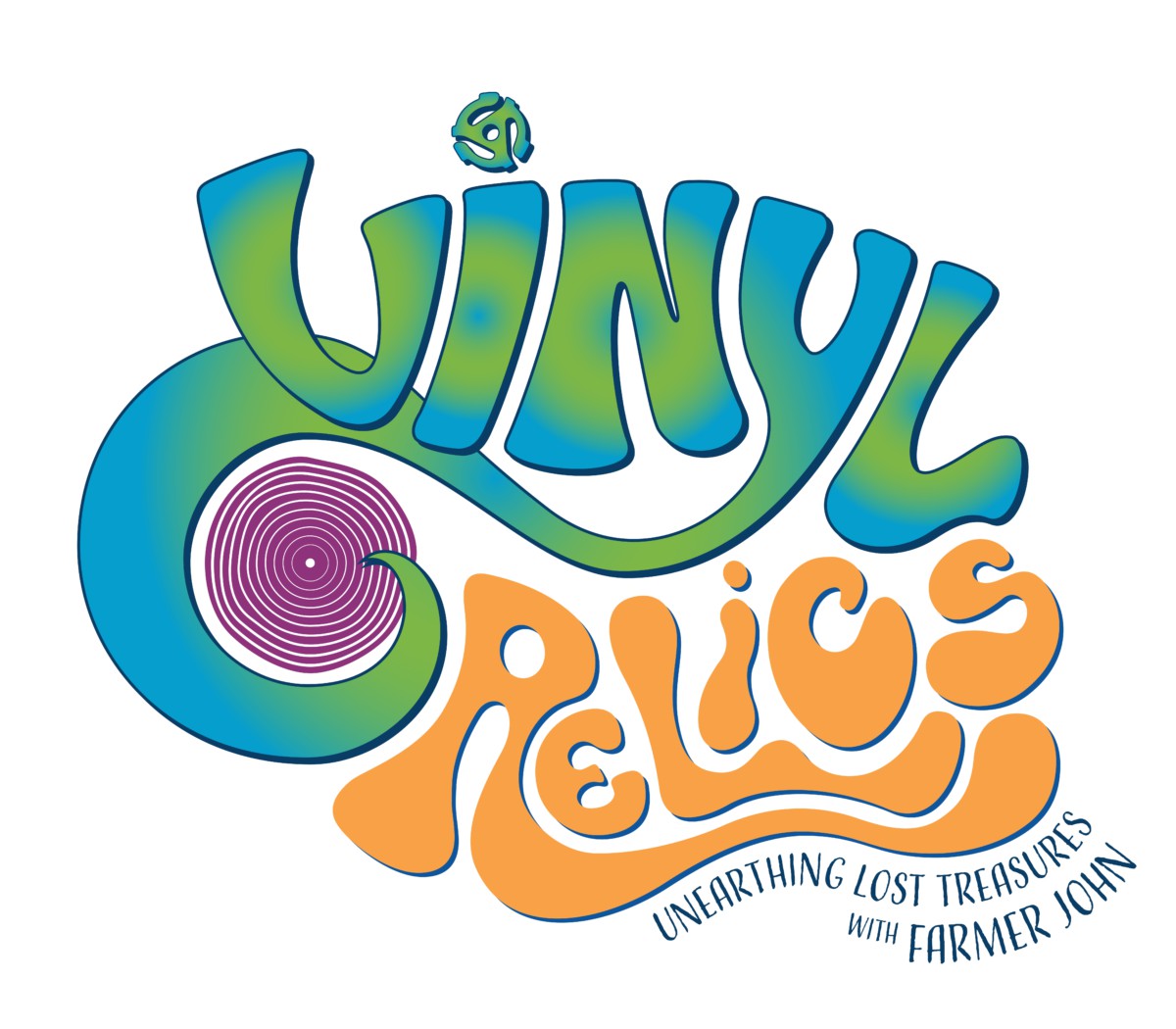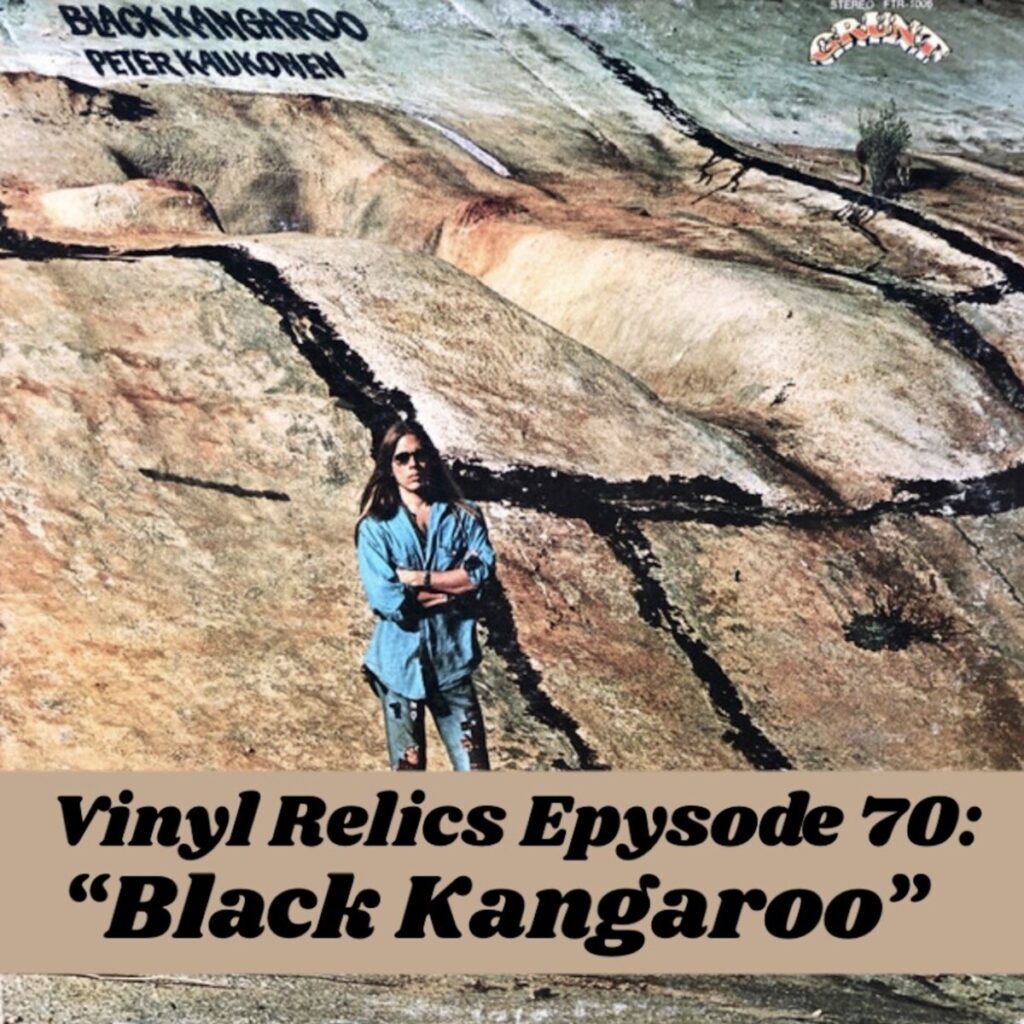Vinyl Relics: Emitt Rhodes by Emitt Rhodes
Vinyl Relics: Emitt Rhodes by Emitt Rhodes
Drummer. Percussionist. Bassist. Lead guitarist. Rhythm guitarist. Pianist. Organist. Lead vocalist. Harmony vocalist. Songwriter. Composer. Lyricist. Arranger. Recording engineer. Mixing engineer. Producer. I’m probably forgetting a few.
That’s quite a resume for anyone, let alone a teenager. By the time Emitt Rhodes had reached the age of 19, he had already toured as a drummer with his first band, The Palace Guard, and played at clubs like The Hullabaloo on Sunset Boulevard. When that band folded, he learned how to play guitar and write songs, and started his own group The Merry-Go-Round. He wrote enough songs to complete a full album, attracting great reviews and touring the country again, including appearances on shows like American Bandstand. He wrote another couple albums worth of material, though the band never got a chance to record them before disbanding. So, he gathered up some recording gear and set up his own studio, wrote yet another album’s worth of material, and recorded the songs himself. Every. Single. Sound. No outside musicians, no engineers, no producers…just him. Not bad for a 19-year-old kid. The only other musician of the time who had taken on a project like this was Paul McCartney.
And Paul is who Emitt is most compared to, given his melodic songwriting and vocal styling. He was even anointed “the one-man Beatles”, a tag he often shied away from.
Emitt Rhodes began his musical journey as the drummer in The Palace Guard, who released a few singles in their short time together. Their most well-known tune is the Nugget-esque “Falling Sugar”. When that group disbanded, he felt it was time to step out from behind the kit and lead his own band. So, he did what all self-respecting 17-year-olds would do: he taught himself how to play guitar and write songs (“I didn’t even know how to tune a guitar”, he would later say). He corralled some other musicians: drummer Joel Larson (The Grass Roots, The Turtles), guitarist Bill Rinehart (The Leaves), and high school friend Gary Kato on bass, while Emitt took on the rhythm guitar and lead vocalist duties. Together, as The Merry-Go-Round, they recorded and released one stellar self-titled album in 1967 that was released to widespread acclaim and sold reasonably well. Two singles were released: “Live” and “You’re a Very Lovely Woman”, which display a songwriting touch far beyond Emitt’s years, especially the latter. One listen to “You’re a Very Lovely Woman” and you can’t help but think, “This kid was 17?”
The Merry-Go-Round had a unique sound – they weren’t quite folk-rock; they weren’t quite pop or baroque and they weren’t quite garage rock. They somehow managed to pull off sounding West Coast AND British Invasion simultaneously. Unique indeed.
When the Merry-Go-Round split, Emitt decided to go completely solo. No one had attempted anything like this in 1970. McCartney would later release his first solo album, McCartney, recorded entirely on his own, but when Emitt started his process, that album had not yet been released.
And so, he tossed off what many consider to be one of the best singer-songwriter albums of the time, with Billboard magazine going so far as to call it “one of the best albums of the decade” – high praise considering the magnitude of quality albums that were released in the ’70s.
He wanted to call the album Home Cooking, complete with photos for the sleeve showing him standing in a burned-down house. It was meant to signify it was created entirely at his home, but coupled with the sleeve photos you end up with a sly wink double-entendre style. Unfortunately, the label didn’t go for it since, at the time, union rules dictated that all “major” releases had to be recorded in what was considered a “proper” recording studio. The folks at the label, of course, didn’t want to draw attention to the fact that rules were being broken.
Emitt Rhodes was the first of Emitt’s deal to record six albums for ABC Dunhill Records. A six-album deal. Pretty good, right? The catch? They had to be delivered in three years. Six albums in three years or one every six months. That’s writing and recording, all alone. No matter how talented one is, that’s a nearly impossible task.
He was already behind schedule when he delivered his second album Mirror. To confuse matters, another Emitt album titled American Dream was also released around the time of his first. This was the obligatory “contractual filler” album issued by his former label, as the Merry-Go-Round owed A&M Records one more album. It was released without Emitt’s consent, but as far as contractually obligated albums are concerned, it’s good.
Farewell to Paradise came out in 1973 and was the last album he would release for a long time. Not being able to match the album-every-six-months pace, he fell into breach of contract. ABC Dunhill sued him for $300,000 ($2.2 million in today’s dollars). As Emitt put it, “I was owned”. He even wondered if perhaps this was the plan all along.
With no means to fight the lawsuit, and not being able to record anymore, he walked away. He became a studio engineer for a while. He did record some stuff, but, aside from a few tracks that leaked onto various compilations, no new Emitt albums saw the light of day.
As the years passed, the story of the “one-man Beatle” legend grew and his albums became cult classics, discussed by music collectors and in various forums and chat groups. Who was Emitt Rhodes, and where did he go? He didn’t stray far, living in the same house, and keeping a low profile.
Forty-three years after releasing the final album of his 70s career, a surprise Emitt Rhodes album arrived. Entitled Rainbow Ends, it showed that, well into his 60’s, he still had a songwriter’s touch. Rainbow Ends was a fitting conclusion to the Emitt Rhodes legacy, as he died not long after from heart failure at 70. Initially, there were plans to tour the album, but he was suffering from poor health and never got the opportunity. We’ll never know what that tour may have been like for Rhodes, but at least we are left with a small but impressive body of work to fall back on whenever we need a dose of finely crafted pop mastery.
If you’re interested in the singer/songwriter genre, the breezy “California” sound of the 60s/enitre70s, or artists in the Paul McCartney vein, then Emitt’s music will be a revelation. Start with Emitt Rhodes or Mirror, they are 1A and 1B in terms of a high-quality mark. The Merry-Go-Round album is also great, especially if you’re into 60’s folk-rock and/or British Invasion sounds. The other titles – Farewell to Paradise and Rainbow Ends – may not have reached the same heights as the others, but they have their moments and are worth seeking.
In Epysode 28 of my audio podcast Vinyl Relics, I dive into each track of Emitt Rhodes and provide a complete history of his musical life. I’ve tracked down some archival interviews that Emitt gave at various points and interspersed them throughout. You can hear this, as well as a couple dozen other epysodes by searching “Vinyl Relics” on any podcast platform. There are new epysodes released every Thursday, each featuring various “under-the-radar” albums, which often include exclusive commentary from artists involved in the project. Vinyl Relics is a podcast for groovy people who like music.
Gallery
Recent Articles

Loading...





2 thoughts on “Vinyl Relics: Emitt Rhodes by Emitt Rhodes”
You refer to several albums of songs that Emmit wrote. Are there any of these trax in the vault??
Those would probably be on The Emitt Rhodes Recordings 1969-1973.